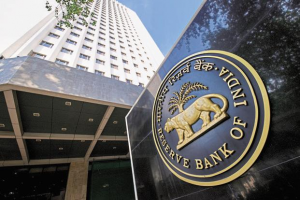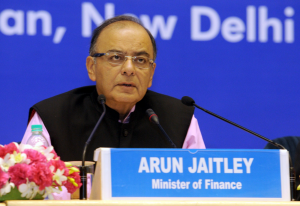While government officials discuss ways to legalize bitcoin for tax purposes, the Indian Supreme Court has given lawmakers four weeks to examine all security issues relating to digital currencies. Last month, Bitcoin.com reported on the government setting up a task force to evaluate whether to regulate and legalize bitcoin, which is expected to take 6 months.
Also read: Indian Bitcoin Adoption Responds to Government Signalling for Regulation
The Supreme Court Order
The Supreme Court of India has asked the central government and the Reserve Bank of India (RBI) for information on steps taken to ensure digital currencies are not used for terror financing or money laundering, reported News18 on Friday. The publication detailed:
The court has given four weeks to examine all security related issues pertaining to virtual currency, including bitcoin.
In addition, “a PIL claimed that the RBI was failing to regulate transactions in virtual currency,” the news outlet detailed. “It also alleged that virtual currency was being used for terror funding and money laundering.”
Bitcoin Legality Still Grey Area
 While bitcoin is already being widely used in India, News18 wrote that there is still “no clear law stating whether bitcoin and other cryptocurrencies are legal in India.”
While bitcoin is already being widely used in India, News18 wrote that there is still “no clear law stating whether bitcoin and other cryptocurrencies are legal in India.”
The RBI has declared bitcoin illegal. On Wednesday, RBI Governor Urjit Patel, speaking at a meeting of the Parliamentary Standing Committee on Finance, reiterated this view. “The case of bitcoin was raised loudly and many Parliament members raised the question whether this currency is illegal in India,” India Today reported. The governor responded by saying “the Reserve Bank has already said that the cryptocurrency is illegal in India.”
While the RBI considers bitcoin illegal, the Finance Ministry is still evaluating whether to legalize and regulate the digital currency. Last month, Bitcoin.com reported on the Indian government setting up a task force to provide recommendations regarding bitcoin regulations in India.
Until the Finance Ministry has finalized its decision, bitcoin is “neither illegal nor legal in India,” wrote the second most circulated English-language newspaper in India, The Hindu, on Thursday.
Finance Ministry Turns Attention to Bitcoin Taxation
A few Indian government officials have recently told The Hindu what they have been considering regarding how to regulate bitcoin. The publication wrote:
The government is considering the introduction of a regulatory regime for virtual or crypto currencies, such as bitcoin, that would enable the levy of the Goods and Services Tax on their sale.
In contrast, Japan and Australia have recently abolished their goods and services taxes on bitcoin purchases. Japan modified their tax law in April but it went into effect on July 1 whereas Australia had been working on removing bitcoin double taxation for over a year.
 In the meeting chaired by Finance Minister Arun Jaitley last month, a few options were discussed such as limited regulation. “This means reiterating that cryptocurrencies are not recognised and those who deal in them do so at their own risk, while focusing on curbing illegal activities,” the news outlet described.
In the meeting chaired by Finance Minister Arun Jaitley last month, a few options were discussed such as limited regulation. “This means reiterating that cryptocurrencies are not recognised and those who deal in them do so at their own risk, while focusing on curbing illegal activities,” the news outlet described.
“A proposal to ban such currency altogether was also considered at the meeting,” according to the newspaper. However, only a few top officials were in favor of this option from the Ministries of Finance, Home Affairs and IT, the Securities and Exchange Board of India (SEBI), the RBI, the State Bank of India, and NITI Aayog.
A government official told the news outlet that “the discussion on whether cryptocurrencies should be banned or regulated has been on for some time,” adding that the pros and cons of this option were discussed at the meeting. A different government official familiar with the matter said:
Banning will give a clear message that all related activities are illegal and will disincetivise those interested in taking speculative risks, but it was pointed out it will impede tax collection on gains made in such activities.
 Instead of banning, the government discussed how regulating bitcoin would boost blockchain technology and “encourage the development of a supervision ecosystem,” which they believe tracks both legal and possibly illegal activities. In addition, it will “promote a formal tax base,” the official said.
Instead of banning, the government discussed how regulating bitcoin would boost blockchain technology and “encourage the development of a supervision ecosystem,” which they believe tracks both legal and possibly illegal activities. In addition, it will “promote a formal tax base,” the official said.
If the government decides to regulate cryptocurrencies, then they would be treated as “digital asset, similar to gold,” The Hindu explained, noting that they will be traded on registered exchanges. This “would ‘promote’ a formal tax base, while keeping a tab on their use for illegal activities such as money laundering, terror funding and drug trafficking,” the newspaper detailed. “The new regime may possibly bring their trading under the oversight of the stock market regulator, Securities and Exchange Board of India (SEBI).”
What do you think the Indian government will do about bitcoin? Let us know in the comments section below.
Images courtesy of Shutterstock, Livemint, and Networked India
Need to calculate your bitcoin holdings? Check our tools section.










